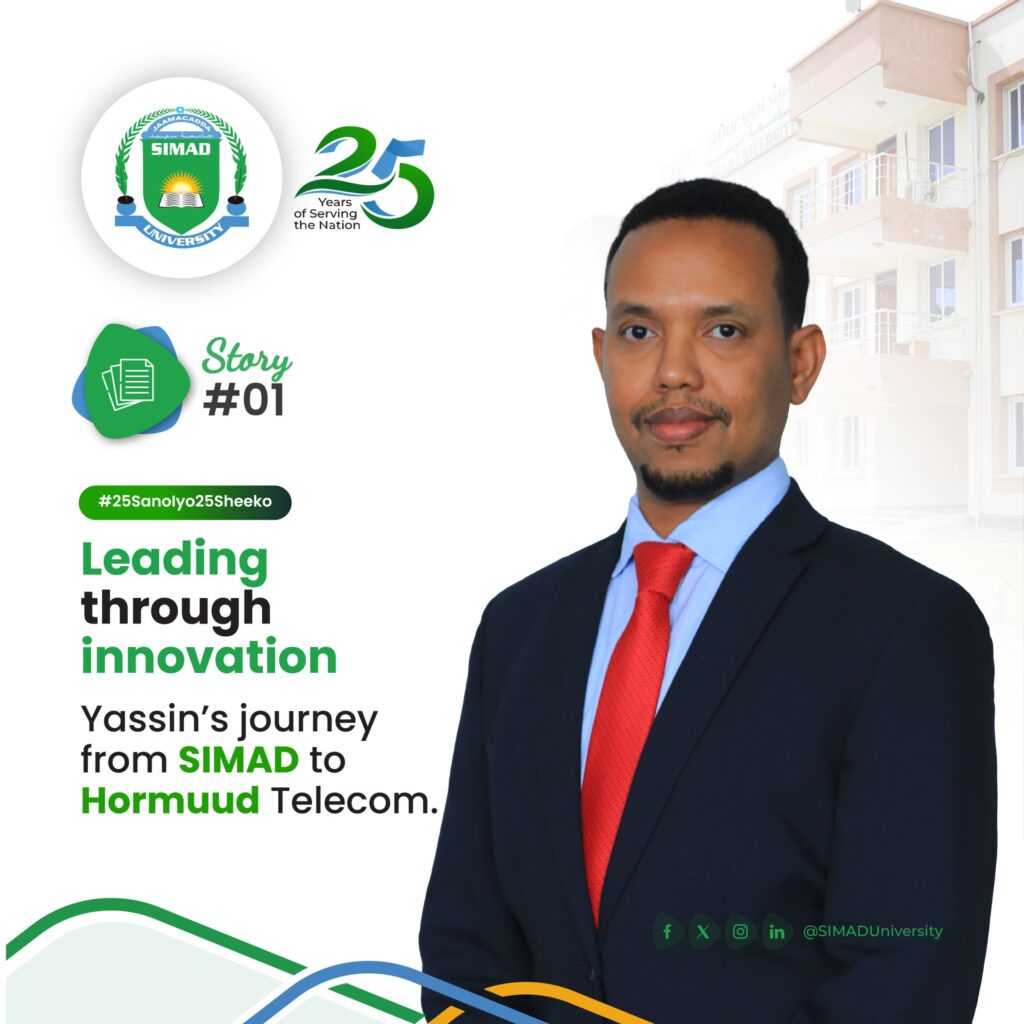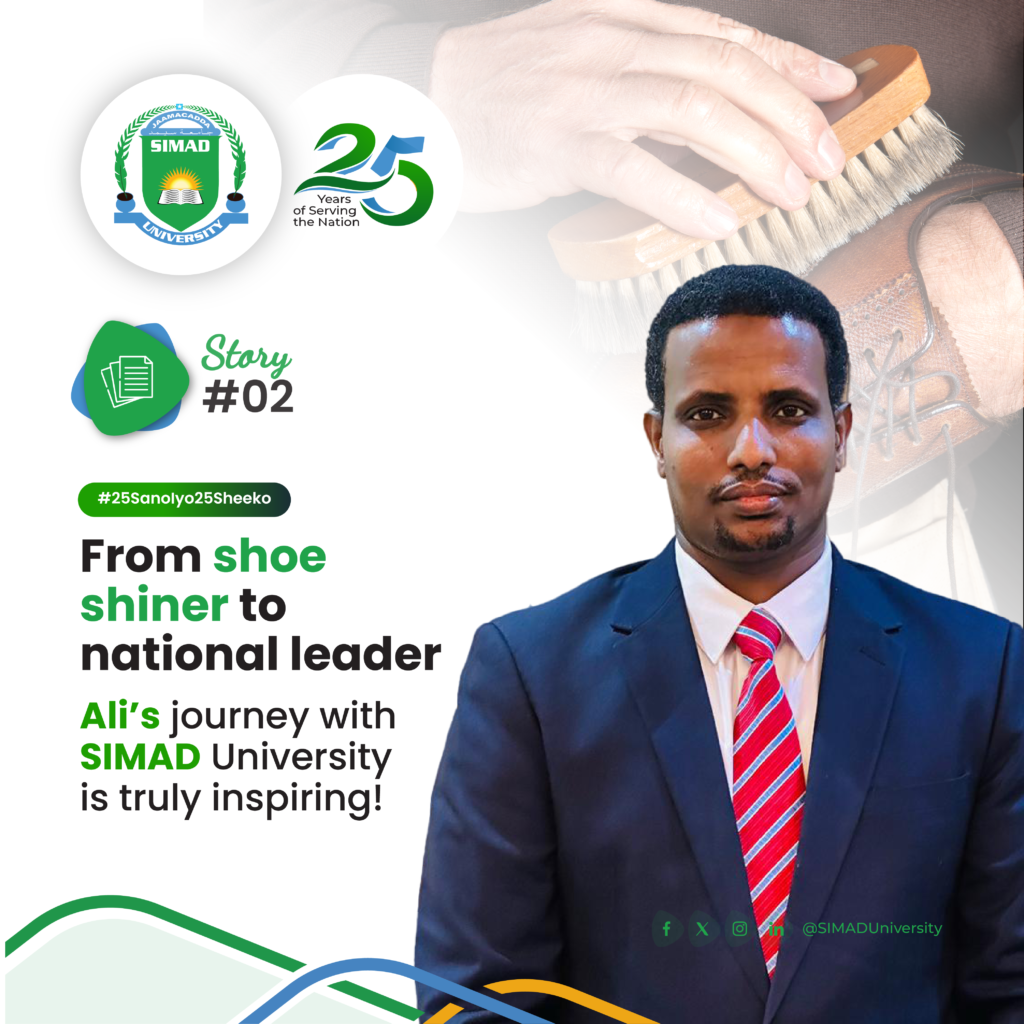Abdirahman Ahmed Mudey – Head of Branches, Dahabshil Bank International
“I first knew about SIMAD in 2002 when I attended my brother’s graduation ceremony at the institute. That experience sparked my interest, leading me to enrol as a student the following year, 2003. Back then, SIMAD was relatively small, offering only three faculties: IT and accounting and business administration. I obtained my diploma in 2005 before pursuing further studies in Malaysia, where I completed my master’s degree in finance. Upon returning, I joined SIMAD as a lecturer and also served as the Dean of Students from 2012 to 2015.
When I returned to SIMAD in 2012, it had transitioned from an institute to a full-fledged university, with multiple faculties. Our goal was to elevate the institution to the top spot in Somalia’s educational landscape, and we worked diligently toward that objective. Despite its growing popularity, each generation of staff and students contributed to its ongoing development.
Initially, the university lacked a dedicated Dean of Students role, with responsibilities primarily falling under admissions and records. However, recognizing the importance of student affairs, the rector established the position. My role encompassed various tasks, including addressing student concerns, providing counselling services, and organising extracurricular activities. We worked tirelessly to offer students a range of activities, such as cultural events and public talks. Over time, the office expanded its scope and helped establish a student government body, known as XAJSi, addressing a crucial need within the university.
In early 2015, I transitioned to the business sector. I had a dual motivation—to contribute to society and to pursue personal development. While I still intend to return to academia and offer assistance, I was also drawn to the idea of engaging in business, either by starting my own venture or joining an existing company. This influenced my decision to move to the private sector
When I joined the bank in 2015, Somalia was still recovering from the civil war, and both universities and banks were essentially starting from scratch. Initially, we only had one branch in the south, but now we’ve expanded to 12 branches across the south and central. This growth mirrors the broader trend in the industry—where we previously had only two banks, we now have 15, including foreign institutions. The sector is expanding rapidly, and the future looks promising.
The impact of SIMAD on my career has been significant. For instance, in my current role at Dahabshil Bank International, many of our staff members are SIMAD alumni, reflecting the institution’s influence in the workforce.
I’m quite active within the SIMAD alumni network. We often have formal and informal gatherings where alumni from various sectors come together. Some are working for the government, others in private businesses, and some have started their own ventures. Despite our diverse paths, there’s always a strong sense of connection among us. We collaborate on different initiatives, especially those related to business. As for giving back to SIMAD, even though I’m currently a full-time employee elsewhere, I’m committed to contributing to the university whenever I can. I’ve expressed my willingness to volunteer my time, whether it’s assisting as a lecturer or supporting in any other capacity. Being here today is a testament to that commitment.”



As a SIMAD alumnus who began his career there in 2010, I am delighted to see him recognized on the SIMAD Official page as a notable product of the institution. He served as both a lecturer and the head of the Student Affairs Office in my study time in rage of 2010 to 2014.